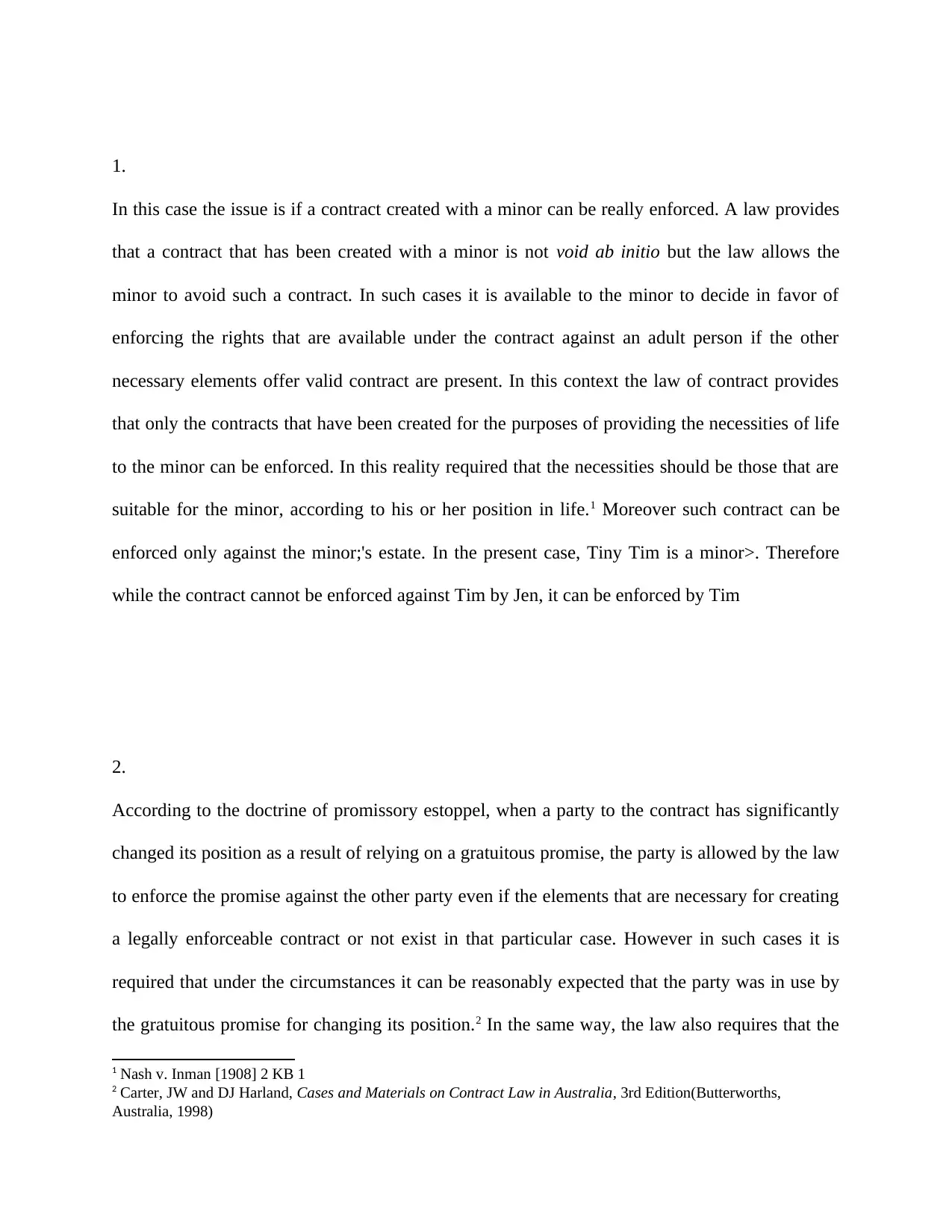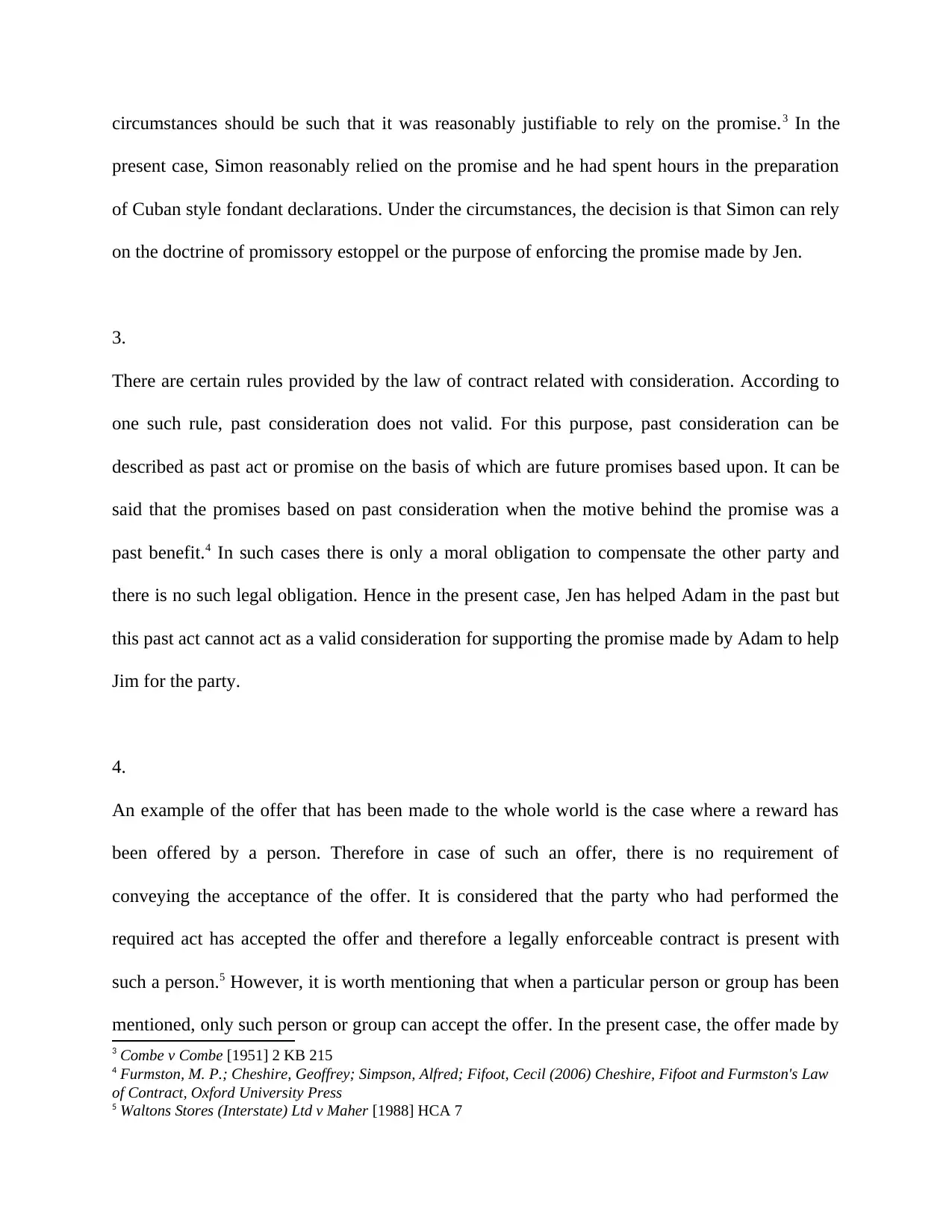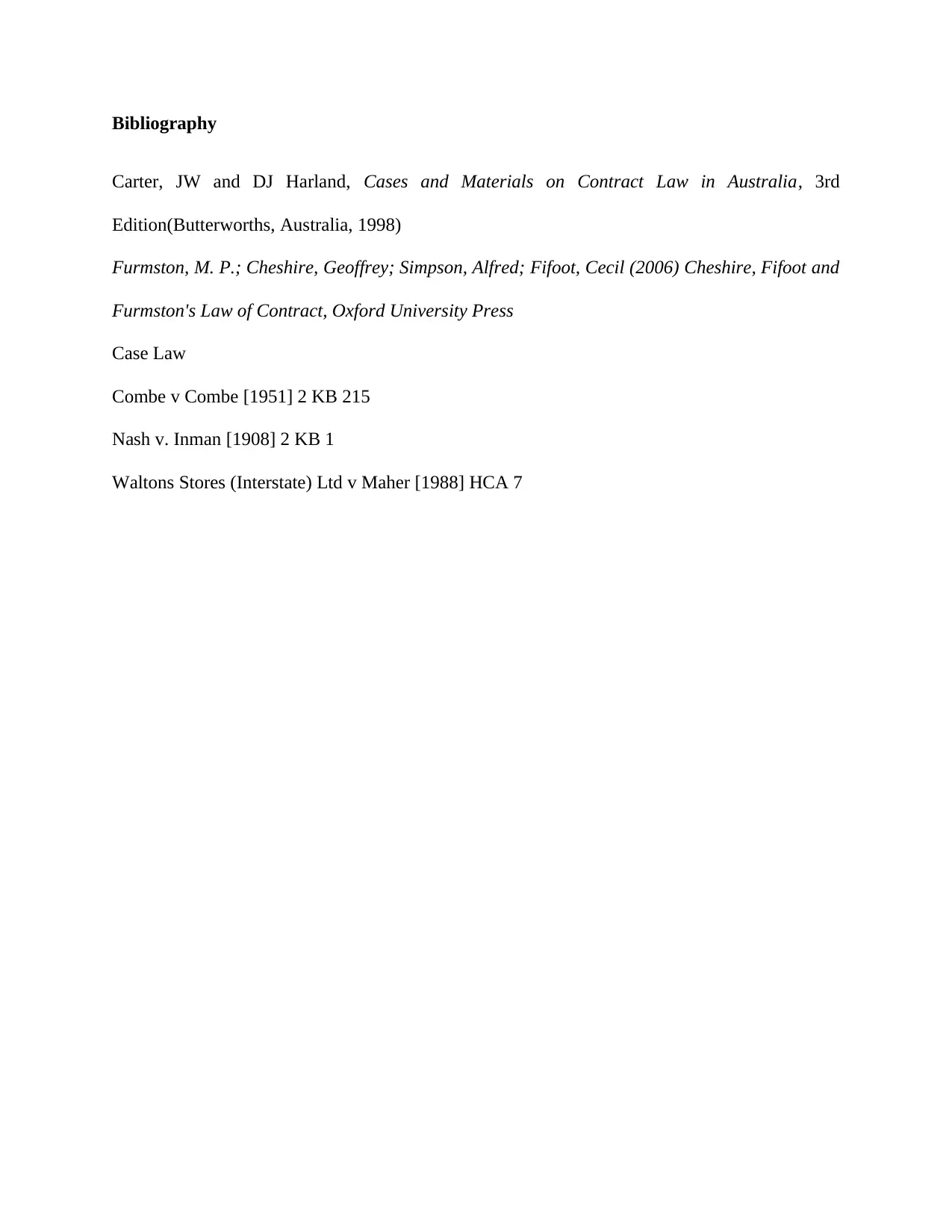Contract Law Assignment: Analyzing Common Law Principles and Cases
VerifiedAdded on 2023/04/23
|4
|844
|211
Homework Assignment
AI Summary
This document presents a comprehensive analysis of a common law assignment concerning contract law principles. The assignment explores several key areas, including the enforceability of contracts with minors, the doctrine of promissory estoppel, the concept of past consideration, and the rules surrounding offers made to the whole world. The solution provides detailed explanations of each legal concept, supported by relevant case law such as Nash v. Inman, Combe v Combe, and Waltons Stores (Interstate) Ltd v Maher. The analysis addresses scenarios involving minors, gratuitous promises, and past acts, providing a clear understanding of how these principles apply in practical situations. The assignment also examines the requirements for valid offers and acceptances, offering a thorough examination of contract law fundamentals.
1 out of 4











![[object Object]](/_next/static/media/star-bottom.7253800d.svg)